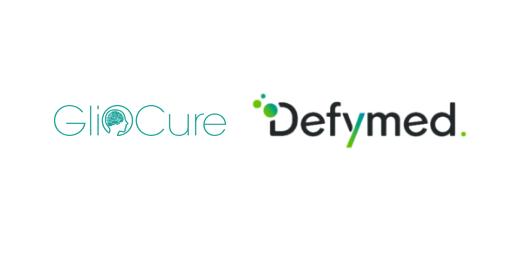 GlioCure, a neuro-oncology drug development company based in Angers, France, and Defymed, a Strasbourg-based medical technology company, have set themselves the joint goal of exploring a new therapeutic approach for solid tumours that have no therapeutic option or that are resistant to standard treatments due to the overexpression of the TUBB3 protein.
GlioCure, a neuro-oncology drug development company based in Angers, France, and Defymed, a Strasbourg-based medical technology company, have set themselves the joint goal of exploring a new therapeutic approach for solid tumours that have no therapeutic option or that are resistant to standard treatments due to the overexpression of the TUBB3 protein.
TUBB3 is a constitutive molecule of microtubules, overexpressed in most brain tumours, but also in some other peripheral solid cancers such as triple-negative breast cancer, for which it is a marker of resistance to standard treatments and predisposition to the development of brain metastases.
Among primary brain tumours, high-grade glioblastoma and more particularly glioblastomas constitute the most frequent and aggressive tumour family. Despite the small number of cases, the severity of the symptoms makes it the second most common cause of cancer death for the young adults and the cancer with the highest socio-economic impact per patient.
However, the complexity and heterogeneity of glioblastoma have not allowed the emergence of therapeutic innovations in recent years, and its management has remained nearly unchanged for almost twenty years.
Aware of the issues at stake, Defymed and GlioCure have therefore initiated an R&D partnership whose ambition is to provide an innovative therapeutic solution associating improved treatment efficacy and quality of life for glioblastoma patients. This objective can be achieved by combining the two paradigm changing approaches developed by Defymed and GlioCure. Patient weel-being being the major challenge for both partners, the expected results of the scientific partnership give new hope for an effective treatment for patients and their families.
“This partnership is an opportunity for Defymed to meet our primary objective of improving the quality of life of as many patients as possible, focusing here on those suffering from glioblastoma for whom ExOlin® combined with the peptide GC01, developed by GlioCure, would represent a hope for a more effective therapy”. Dr Séverine Sigrist, President of Defymed
“Our drug candidate GC01 blocks cell division in a tumour cell-specific manner by inhibiting the polymerization of TUBB3. It has already demonstrated its activity in vivo on several glioblastoma models and we believe that its administration via ExOlin® will enhance its efficacy through prolongated delivery, while ultimately limiting the need for hospitalization for patients.” Louis-Marie Bachelot, CEO of GlioCure.
